

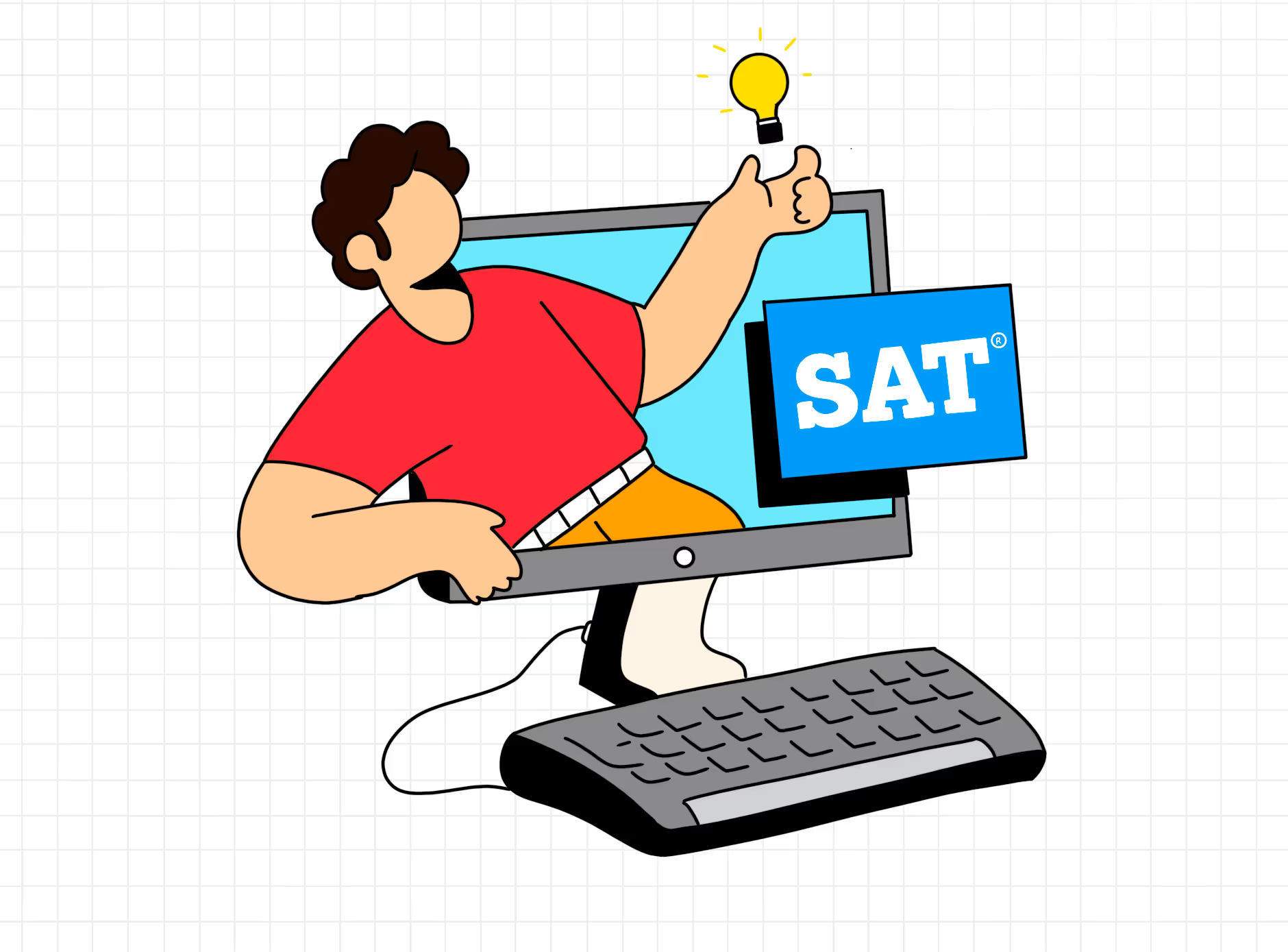
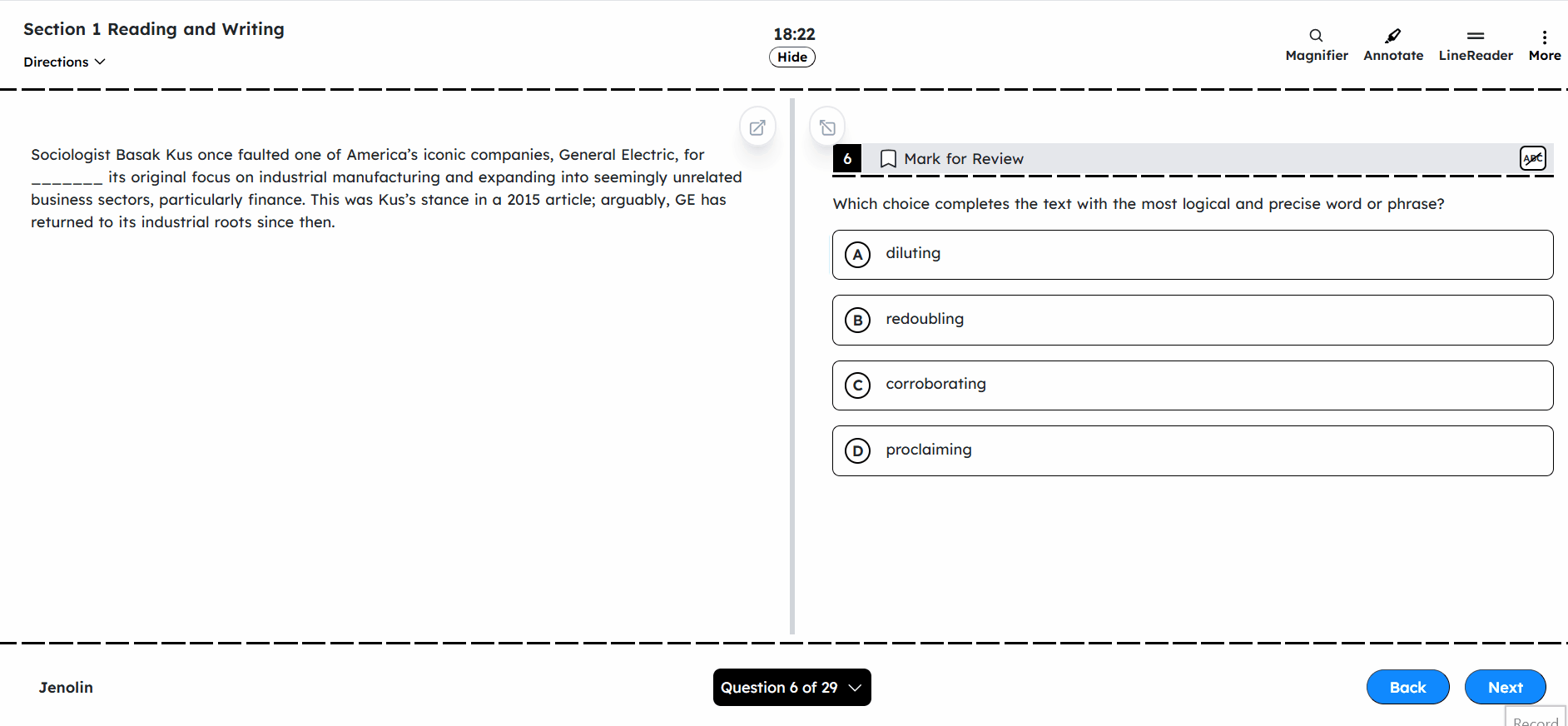

Key Takeaways
- Hire tutors who combine subject mastery with strong communication and digital tool fluency.
- Build consistent hiring processes to ensure quality and long-term team alignment.
- Great tutors drive student success, firm growth, and a reputation for excellence.
Running a SAT prep firm requires multiple skills, but the ability to hire qualified SAT tutors is critical because it affects students’ scores as well as your test prep firm’s growth prospects and reputation.
However, hiring great SAT tutors isn’t straightforward. You need qualified individuals who know the test inside out, can connect with teens, and enjoy teaching. Most importantly, they should be comfortable using modern day digital tutoring tools.
It takes time and effort to find such people who check all the boxes.
In this guide, we’ll walk you through the full hiring process: what to look for in a standout SAT tutor, where to find them, how to vet them properly, and whether it makes more sense to hire freelancers or build an in-house team.
We’ll also share tips on keeping your best tutors happy and engaged in the long run.
What makes hiring the right SAT tutors so critical?
Hiring the right SAT tutors is one of the most important decisions you can make as an SAT prep firm owner or manager. The quality of your tutors directly impacts the success of your students, your firm’s reputation, and your ability to grow in a competitive market.
In this section, we’ll explore five key reasons why hiring top-tier SAT tutors is so critical to the success of your test prep business. These reasons go beyond just filling a position – they influence every aspect of your firm, from the results you deliver to the brand you build.
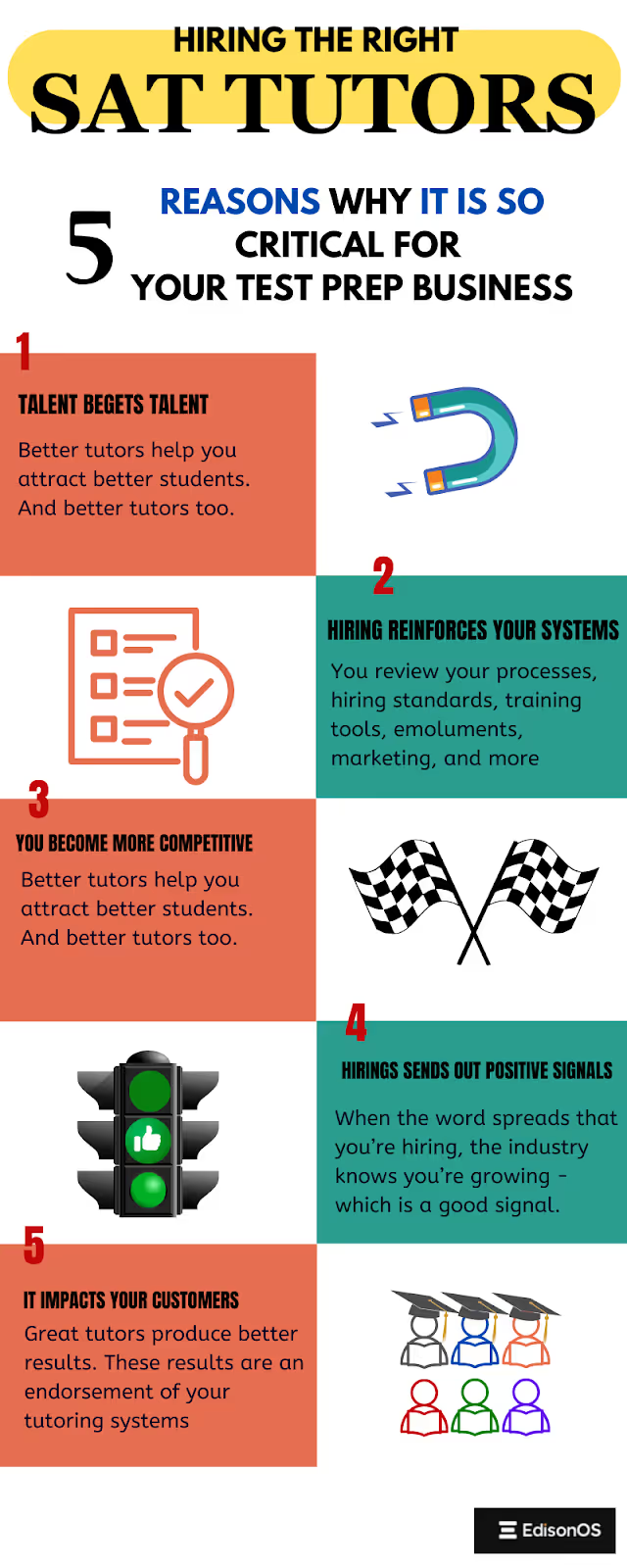
1. Talent begets talent
The quality of your tutors directly impacts the quality of your students. When you hire exceptional tutors, they bring a wealth of knowledge, teaching strategies, and energy that attracts similarly high-caliber students.
Talented tutors raise the bar, setting a standard for excellence that encourages students to perform better. In turn, high-performing students often come from families with higher expectations, leading to a cycle where your firm’s reputation for excellence continues to grow.
Simply put, by investing in top talent, you create a ripple effect that attracts better students, which helps solidify your position as a leader in SAT prep.
2. A focus on hiring the best helps improve your systems.
Every tutor you hire is a key component of your firm’s operational ecosystem. By choosing tutors who fit seamlessly into your established systems and processes, you reinforce the structures that make your business efficient and effective.
Strong tutors understand the importance of adhering to standardized methods, teaching materials, and best practices. This consistency in approach helps maintain quality control and ensures that students receive a uniform and high-quality experience across the board.
When your hiring decisions align with your systems, your firm runs more smoothly, and you can scale your operations without compromising quality.
3. You become more competitive and growth-oriented.
The SAT prep market is highly competitive, with new firms emerging constantly. By hiring the right tutors, you position yourself to stand out from the crowd.
Skilled tutors not only improve student outcomes but also serve as ambassadors for your brand. Their reputation as experts in the field attracts students, parents, and other educational professionals.
Having a talented team allows your firm to expand your services, offer more personalized experiences, and stay ahead of emerging trends in SAT prep.
This competitive edge opens up new opportunities for growth, whether it's through word-of-mouth referrals, stronger partnerships, or increased visibility in the marketplace.
4. Hiring tends to send out positive signals.
Your hiring choices send powerful signals to both internal and external stakeholders about your business.
To your students and their families, hiring talented tutors demonstrates your firm’s commitment to excellence. It reassures them that they are receiving top-quality education, which directly impacts their trust in your firm.
To potential partners and employees, it signals that you are serious about building a reputable, high-quality organization.
When you bring the right tutors on board, you establish a culture of excellence that’s visible to the entire community, helping you attract more students and build lasting relationships with educators and partners.
5.Your customers are directly impacted.
At the end of the day, the quality of your tutors significantly impacts your customers – your students and their families.
Parents are entrusting you with one of their child’s most important academic milestones, and the tutors you hire are a direct reflection of the value you provide.
Great tutors not only teach academic content but also inspire confidence and help students develop the skills they need to succeed on the SAT and beyond.
Your customers will notice the difference – from improved student scores to the overall experience they have with your firm. When you hire the right tutors, you’re directly improving the outcomes for your students, which in turn drives customer satisfaction and loyalty.
5 maxims for building a SAT tutoring team
Keep these five things in mind while hiring tutors. They will help you look beyond SAT tutor qualifications:
1. Look for trainability and attitude.
When hiring SAT tutors, prioritize individuals with the right attitude and an eagerness to learn over raw experience alone. SAT prep requires more than just subject knowledge – it’s about adaptability and fostering student growth.
Tutors with a growth mindset will not only improve their own skills through training but also help students develop resilience and confidence in their test-taking abilities. The right attitude can set the foundation for long-term success, both for your tutors and your students.
Look for candidates who demonstrate a passion for teaching and a willingness to refine their craft through training, feedback, and continuous learning.
2. Don’t settle for okay quality.
In the competitive world of SAT prep, delivering subpar tutoring simply isn’t an option. Striving for excellence in every tutor you hire will directly impact your firm’s reputation and success.
Don’t settle for tutors who are just “okay” or who check the box. You need individuals who are not only knowledgeable but also skilled at transferring that knowledge to students in a clear, engaging way.
Great SAT tutors can adjust their methods to suit different learning styles and needs. Invest time and resources into finding the best candidates who are committed to delivering high-quality tutoring, ensuring that your students receive the best possible prep.
3. Processes trump luck in the long run.
While luck can occasionally land you a great tutor, relying on chance is a risky strategy. Instead, focus on building robust hiring processes that consistently lead to the recruitment of high-quality tutors.
From clear job descriptions to thorough interview questions and structured training, creating a systemized process will ensure that you hire tutors who are both qualified and aligned with your firm’s teaching philosophy.
Implementing effective onboarding, regular feedback loops, and continuous professional development will also enhance your team’s performance. Remember, it's the processes that make success repeatable, not luck.
4. Look at the team goals
When building your SAT tutoring team, it's essential to align their goals with your firm’s broader objectives. Every tutor should understand how their work fits into the larger mission of helping students achieve their best SAT scores.
As a firm owner or manager, you must foster a culture of collaboration where each tutor feels invested in the team’s success. Setting clear, measurable goals for both individual tutors and the team as a whole will help everyone stay focused and motivated.
This alignment will improve team cohesion and ensure that your tutors are working toward a shared vision, resulting in better outcomes for your students and your firm.
5. Tutoring is a responsibility.
Being an SAT tutor is not just about reviewing test content – it’s about guiding students through an important milestone in their academic journey. It’s a responsibility that requires patience, empathy, and commitment.
The best SAT tutors take this responsibility seriously, understanding that they have a direct impact on students’ futures. When hiring, look for candidates who recognize the weight of this responsibility and are passionate about making a meaningful difference. Tutors who approach their work with a sense of purpose will inspire students to take their preparation seriously, leading to better results and a more rewarding tutoring experience for everyone involved.

Five qualities to look when you hire SAT tutors
Hiring the right SAT tutors is crucial for the success of your test prep firm, but knowing exactly what qualities to look for can be a challenge. SAT tutoring requires more than just a strong understanding of the subject – it demands a unique combination of skills, personality traits, and teaching abilities that can engage and motivate students.
Here are the five qualities your SAT tutors must possess:
1. Subject mastery
SAT tutors must have an in-depth understanding of all sections of the test – math, reading, writing, and the essay – as well as the specific strategies required to tackle each one effectively.
This isn’t just about knowing the material, but understanding the nuances of the SAT itself, including common question types, time management, and the test’s evolving format.
A tutor with strong subject mastery can break down complex concepts, identify patterns in questions, and offer targeted strategies that help students maximize their scores.
Without this foundational expertise, tutors will struggle to help students develop the depth of knowledge and skills needed to succeed on the SAT.
Here are nine effective methods to assess an SAT tutor's subject mastery:
- Subject-Specific Testing: Administer a mock SAT or subject-specific tests to evaluate the tutor's ability to solve problems accurately and efficiently under timed conditions.
- Review of SAT Score: Ask for the tutor’s own SAT score, particularly in the sections they will be teaching. A high score in relevant sections is an indicator of their proficiency.
- In-Depth Interviews: Conduct an interview where the tutor is asked to explain specific SAT topics in detail. Evaluate their ability to break down complex concepts into understandable explanations.
- Sample Lesson Observation: Have the tutor conduct a mock lesson with an observer present to assess how effectively they explain SAT content and engage with students.
- Teaching Demo: Request a demonstration of their teaching skills through a live, timed session covering SAT content, where you can observe their approach, clarity, and problem-solving abilities.
- Review of Past Experience: Evaluate the tutor’s previous experience, including whether they’ve taught SAT prep before, and assess their familiarity with common SAT question types and strategies.
- Feedback from Past Students: Gather feedback from previous students (or colleagues if applicable) about the tutor’s ability to help students grasp SAT content and improve scores.
- Content Knowledge Interviews: Ask the tutor to explain key strategies for solving specific SAT math or verbal questions. Their responses should demonstrate not just the correct answers but the reasoning behind them.
- Certification or Training: Check if the tutor has certifications or specialized training in SAT preparation. While not mandatory, these can be indicators of a serious commitment to subject expertise.
2. Passion for teaching and student success
As a test prep firm owner or manager, look for tutors who demonstrate enthusiasm during interviews or training sessions.
Ask questions that reveal their motivation for teaching, such as “What drives you to teach SAT prep?” or “How do you measure student success beyond the score?”
A tutor with a genuine interest in student achievement will inspire greater confidence in their students, fostering a sense of trust and engagement that leads to improved performance.
The UCLA Bruins team of John R Wooden, legendary basketball coach, won a record seven NCAA national championships in a row. The best the other teams have done is four wins. His philosophy was pithy, “Be quick, but don’t hurry.”
Your tutor should be able to improve your students’ test-taking skills quickly. But if they hurry through the tutoring without empathy or the sense of commitment to really help students, they will most likely fail.
Additionally, implement ongoing professional development opportunities to help tutors refine their skills and stay passionate about their work. This can include workshops, peer reviews, or providing resources for the latest teaching techniques.
3. Ability to use tools to personalize tutoring
Modern-day tutoring has evolved. Students don’t spend endless hours with the tutor; their typical interaction with the tutor is no more than 2 to 4 hours a week.
So your tutor has to rely on insights from practice tests and assignments of their students to assess where the student stands. Based on this, your tutor will re-pivot their sessions: maybe spend more time with geometry, or perhaps go over the “central idea” kind of questions once again.
That’s why your tutors should be very comfortable and conversant with digital tools. The better they can use these tools, the better results they will produce.
4. Adaptability
As a test prep firm owner or manager, assess a tutor’s adaptability during the interview process by asking situational questions like: “How would you handle a student who is struggling with math but excels in reading?” or “What steps would you take if a student isn't responding to a particular teaching method?”
This will help you gauge their ability to pivot when necessary. You can also offer a trial period where new tutors can demonstrate their flexibility in real-world teaching scenarios.
Encourage ongoing development by providing tutors with opportunities to learn different teaching techniques or access resources on diverse learning styles.
You could organize workshops or discussions on adaptive teaching strategies and incorporate regular feedback from students to help tutors refine their approaches. Fostering adaptability in your team will ensure that every student receives personalized support, leading to better outcomes and higher satisfaction
5. Strong communication skills
SAT prep isn’t just about delivering content; it’s about ensuring that students fully understand and can apply that content.
A tutor with strong communication skills can break down complex topics into digestible pieces, making challenging areas of the test more approachable. They should be able to explain tricky math problems, reading comprehension strategies, and grammar rules in ways that resonate with students of all learning styles.
In addition to technical explanations, strong communication also involves active listening. SAT tutors must be able to identify where students are struggling, respond to their questions, and adjust explanations accordingly. T
Tutors should also encourage open dialogue, creating a space where students feel comfortable asking questions and making mistakes.
Ultimately, the goal is to foster a productive, supportive learning environment that empowers students to grasp difficult concepts and build the confidence needed to perform well on the test.
Where to look when hiring SAT tutors
With so many platforms and job boards out there, you’d think hiring would be simpler by now—but it can still feel like finding a needle in a haystack. Here are some tried-and-true places to scout for strong SAT tutor candidates:
1. College alumni networks
Many colleges love supporting alumni and are happy to connect you with recent grads or experienced tutors. Most universities have active alumni bases, though some networks may need a little digging around to find the right people.
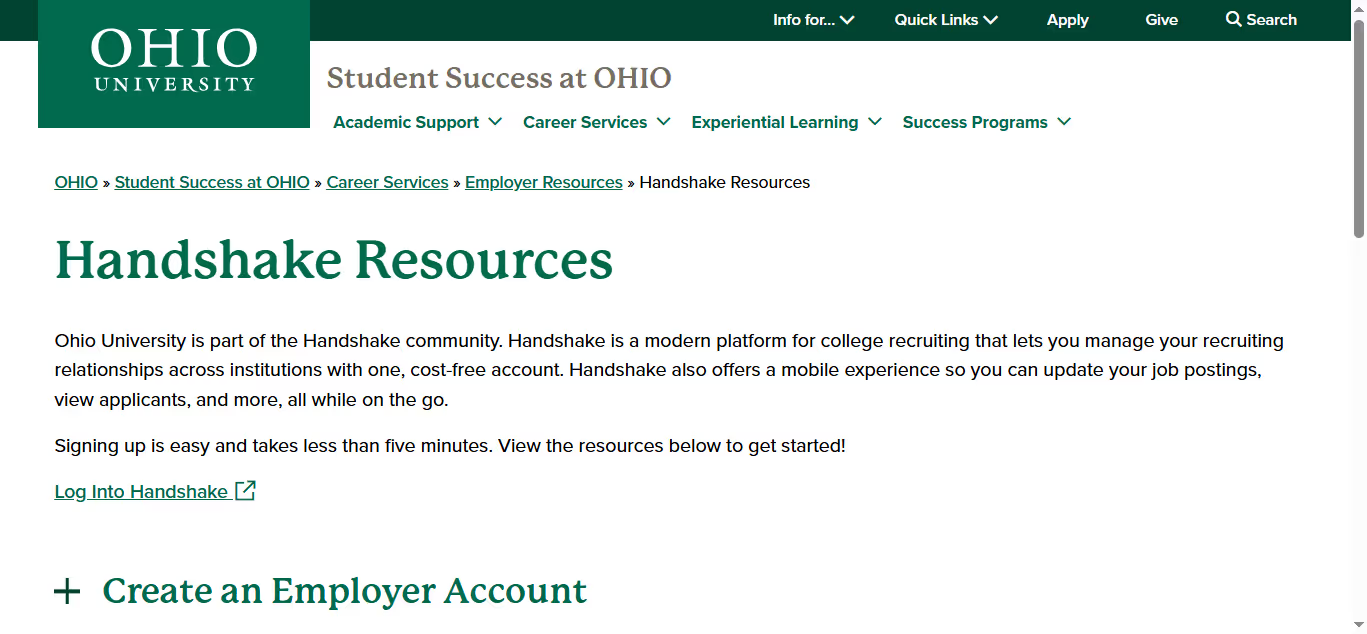
A benefit of working with alumni networks is that it is less likely that someone will come with forged university credentials.
2. Tutoring platforms
Websites like Wyzant, Tutor.com, and Skooli are packed with tutors. Some are freelancers, while some are tied to other brands. These platforms often include reviews from students, which helps you quickly spot those who know their stuff and have the teaching chops.
3. Online communities and niche job boards
Subreddits like r/SAT and r/Tutors are surprisingly helpful for hiring. People post job openings, tutor profiles, and even feedback. Teaching forums are another great spot to find passionate, experienced educators.
Additionally, you can look at job boards or dedicated job-search sites like Indeed. There are multiple options on how you can make the hiring ads more visible, including paid alternatives.

4. Referrals from your network
Never underestimate word of mouth. Ask your current tutors or educator friends if they know someone great. It’s informal, but often leads to the most reliable hires—and if you offer a referral bonus, even better.
5. LinkedIn
LinkedIn isn’t just for corporate jobs. Use filters (especially with tools like Sales Navigator) to zero in on candidates with relevant experience. Job boards like FlexJobs and EdTech Jobs can also surface tutors open to remote or part-time gigs.
Even if you’re not a premium user, you can use their Groups feature to source talent. Also, when you share a post saying you’re hiring, it will show up in the notifications of many people in your network. That will give them an opportunity to share your post and give you better visibility.

Interviewing and vetting SAT tutors
Hiring great tutors isn’t just about checking test scores and calling it a day. You want people who know their stuff, communicate well, and genuinely click with your team and students.
Here’s how to make sure you’re choosing the right fit:
1. Interview them.
Surprisingly, some test prep firm owners believe that if a demo session goes great and the SAT score card is good, an interview is merely a formality. While the first two activities are essential, they are not enough.
While interviewing them, be sure ask them at least these questions:
- Can you walk me through how you handle struggling students?
- Do you have any score improvement stories?
- How do you stay updated with SAT changes?
- What do you know about us?
- Do you understand how SAT scoring works?
2. Check their SAT scores.
Start with the basics. Ideally, your tutors should have strong digital SAT scores. A 1400+ is a good benchmark, since it puts them around the 94th percentile. But if you can find someone with a 1500 or higher, that’s even better. They don’t need a perfect score, but they should be strong enough to inspire confidence.
3. Scan their resume.
Look for stability. A resume full of short gigs across different industries might suggest they’re still figuring things out. You don’t need someone who’s taught forever, but you do want someone who’s committed, reliable, and has a clear interest in education.
4. Always check references.
Even if everything looks good on paper, it’s smart to do a quick reference check. It’s not about being suspicious, it’s about protecting your students and your business. One phone call can save you a lot of stress later.
5. Make sure they’ll mesh with your team.
A great tutor on paper might still not be the right fit if they don’t gel with how your prep firm works. If you're a newer company, someone with experience might help build structure. If you're more established, you might prefer someone who can adapt quickly and run with your systems.
6. Watch them teach.
This is the big one. A short demo lesson tells you more than any resume or interview. Watch how they explain concepts, handle questions, and keep students engaged. Are they clear and confident? Do they make complex ideas feel simple? That’s what you’re looking for.
7. Give them a practice test.
Why not? Just ask them to take a practice SAT test and see how they perform. EdisonOS offers a free digital SAT where you get extensive feedback on the strong and weak areas of the test-taker, in addition to the test. You will get an immediate evaluation of how your prospective tutor can perform (and whether they can practice what they will be preaching).
8. Pay attention to how they communicate.
From the first email or call, take note of their communication style. Are they responsive, polite, and professional? Do they follow through on next steps without you having to chase them? These small things matter, especially when your clients are trusting them with something as important as SAT prep.
Onboarding and training new tutors
Once you’ve hired SAT tutors, don’t skip the onboarding. A structured onboarding process helps tutors understand your firm’s teaching philosophy, score improvement goals, and student expectations.
- Start by sharing your curriculum, commonly used resources, and lesson plans.
- Give them access to any platforms or tools your team uses, like score trackers, scheduling software, or communication channels.
- More importantly, based on their experience and skills, ask for their views and incorporate them if they fit your processes and goals.
Next, pair them with a mentor or senior tutor for a few “shadow” sessions. Shadow sessions are where the mentor remains in the shadows, observing the new tutor work with students. This allows them to observe how lessons are delivered and how different student needs are handled.
You can also schedule mock sessions where they teach a sample topic and receive feedback. These trial runs build confidence and help standardize quality across your team.
Finally, emphasize ongoing training. SAT patterns evolve, especially with the digital format. Encourage tutors to attend regular check-ins, workshops, or internal sessions to stay aligned and sharpen their skills.
How EdisonOS helps manage SAT tutors effectively
EdisonOS isn’t just another testing platform; it helps test prep firms manage tutoring and hiring processes effectively.
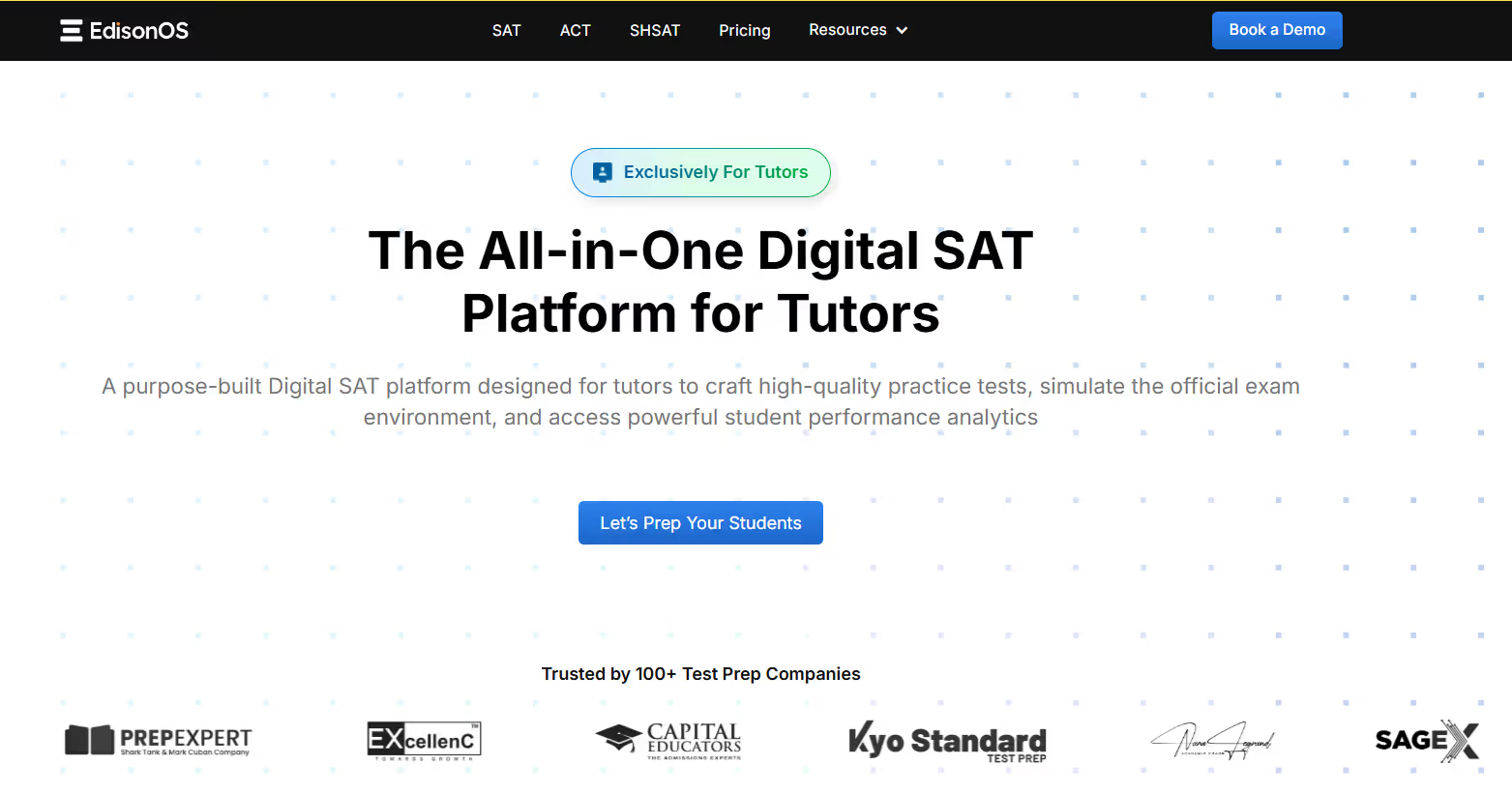
When you’re trying to put together a team of the best tutors for SAT prep, you need tools that can take the tutoring to the next level.
Here’s some of the things that EdisonOS offers:
- Centralized tutor dashboard
All the information that you need on your tutors is available under a single, unified dashboard. That enables you to track their activities, and monitor engagement and outcomes.
- Tracking student outcomes by tutor
How’d you know if tutor A was better than tutor B? Your basic feedback system may be good, but it’s never sufficient. EdisonOS lets you track student outcomes by tutor. That way you’ll have an objective way to gauge how effective a tutor has been.
- Session logs and performance reports
Paper-based logs and reports only add to more papers without adding any value. Performance reports and session logs tell you how each tutor is deployed and whether there’s a better, more optimal redistribution possible.
- Communication and scheduling tools
You hire SAT tutors so that you can drive growth, not drown yourself in complex scheduling activities. With EdisonOS, you can schedule your tutors’ sessions so that they match their availability with the right students.
Freelancers or in-house tutors: What’s best for your SAT test prep firm?
Not surprisingly, the answer isn’t definitive. You will need to see each point and counterpoint before you can figure out what’s best for your prepping business.
However, here is the general guideline: If you're looking for flexibility, seasonal support, or subject-specific expertise, freelancers could be the better fit.
On the flip side, if your goal is to build a strong brand with a tight-knit team and standardized teaching methods, in-house tutors might be worth the investment.
Here is a table comparing the pros and cons of a freelance tutor vs an in-house tutor:
Hiring SAT tutors: The final verdict
Whether you opt for freelancers or in-house tutors, you’ll definitely need to hire tutors if you want to grow your SAT test prep business. You not only need to understand why it’s so critical to hire great tutors, but you also need to know what to look for in the tutors you hire.
EdisonOS has been helping tutors and test-prep firms for the SAT.
You can book a free demo to learn how you can use our platform to get the most out of your tutoring team.
Frequently asked questions
Check their SAT score (1400+), review their teaching experience with the SAT specifically, and ask for a demo lesson. You can also assess how well they explain concepts, solve problems, and adapt to student needs during the session. Pay attention to how clearly they communicate and whether they make difficult concepts easier to grasp.
Ideally, look for both. If, however, you have to choose one over the other, choose teaching experience. A high test score shows subject knowledge, but teaching experience proves they can explain concepts clearly, adapt to student needs, and improve scores over time. A caveat: be mindful of the recency of experience; someone who last taught fifteen years back will need a lot of rework. Finally, check the systems and priorities at your tutoring firm. For instance, if you don’t have any tutor with 1500+ and now someone with 1550 is available, perhaps it makes good marketing sense.
The most obvious answer is competitive pay, flexible schedules, and opportunities for professional growth. Make them feel valued through regular feedback, recognition, and a positive work culture. A good tutor will stay where they’re supported and trusted. However, work culture is the X factor here. You’ll need to put in some effort in building a culture where people enjoy working. Culture flows top-down, so it’s your responsibility.
If you’re looking at delivering personalized coaching, each student should have 1 tutor during their time slot. If you tutor in groups, try not to exceed 4 or 5 students for every tutor, per tutoring session.
Yes, but you’ll need strong checks and balances to ensure quality control and a robust review system. On their side, you’ll need tutors with experience (so that they need little to no hand-holding) and a commitment to deliver.

Tutors Edge by EdisonOS
in our newsletter, curated to help tutors stay ahead!
Tutors Edge by EdisonOS
Get Exclusive test insights and updates in our newsletter, curated to help tutors stay ahead!
Recommended Reads
Recommended Podcasts












.png)
.webp)
